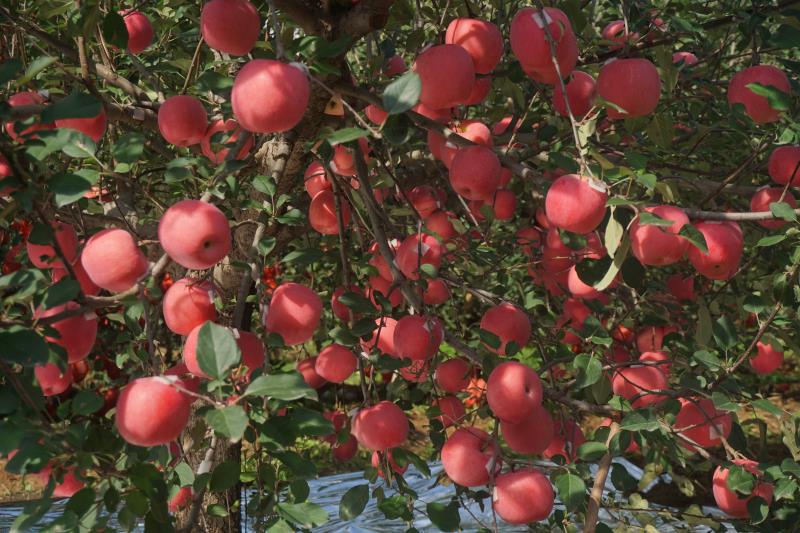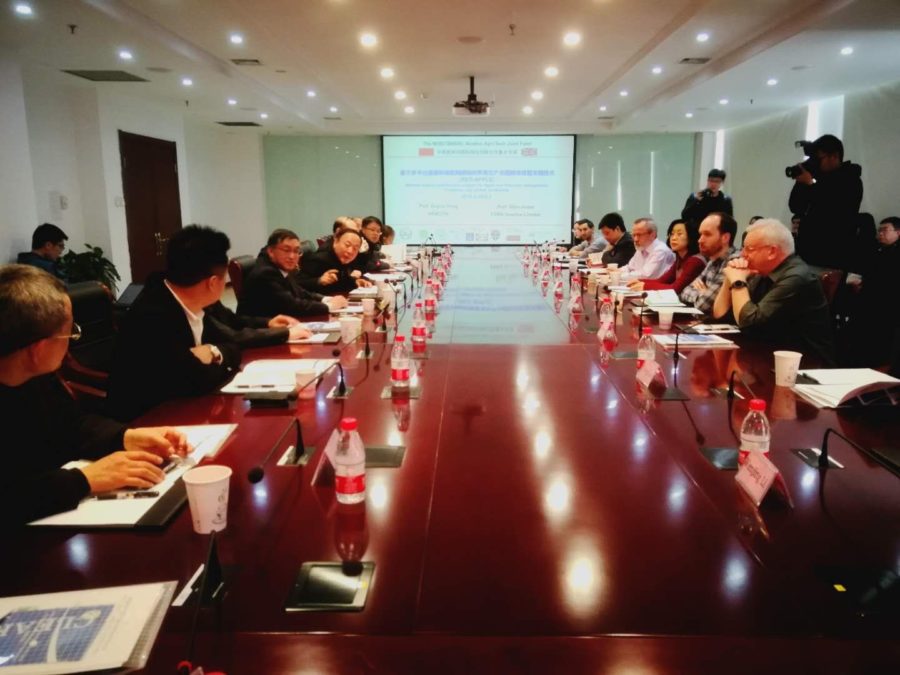16th April 2019 Beijing
Working with China to produce an apple of lasting legacy

China is the world’s largest apple producer, harvesting 31 million tons in 2018 which accounted for 50% of the global production. Yet the industry suffered a 25% drop from the previous year due to bad weather. The Newton funded RED APPLE project kicked off in Beijing in the changeable spring weather of late March. This new project will work with industry partners including leading organic apple producer, Boshida, to reduce crop losses, improve yield and quality, and to establish precision management and global traceability for the whole supply chain.
This is one of the first 9 projects under the Newton agritech challenge, bringing together the best academic and industry players as project leads in a UK China bilateral call. Innovate UK and BBSRC worked together to secure £8 million from the UK side, with the Chinese Ministry of Science and Technology (MoST) match-funding RMB 60 million (about £7 million). The Chinese side has high expectations of the programme as the country has adopted an innovation driven development strategy, and is keen to learn how it will work for its economy through partnerships with the UK.
RED APPLE will apply new technologies including remote sensing, cloud computing, block chain and Internet of Things in the organic apple orchards in Shandong province, one of China’s top 3 apple producing regions. The kick off meeting was opened by Prof Chunjiang Zhao, Director of China National Engineering Research Centre for Information Technology in Agriculture (NERCITA), one of the UK’s key partners in China for agritech collaboration. Prof Zhao has led on a number of UK China agritech projects. It is great to see him introduce the UK to China’s best academic and industry specialists in apple technologies.
Mr. Xiaobing Wang, Director General of the Information Centre at the Ministry of Agricultural and Rural Affairs (MARA), gave the project an inspirational vision. He described how China is rolling out digital economy in rural areas to shape its new economic engine. Its rural e-commerce retails hit RMB 1.37 trillion (about £154 billion) in 2018, however, agricultural products reaped just RMB 2.6 billion (about £291 million). There is huge potential for the technologies of this project; particularly when 5G becomes commercially available. He offered support for the pilot and the scale up of the outcome. Mr. Fengyun Lei, Deputy Director General of International Cooperation of MoST, expressed his hope to see the UK play an outstanding role in China’s move to Agriculture 4.0 which is underlined by these new technologies.

The project is led by Fera Science Ltd and NERCITA with Dr. Glyn Jones and Prof Guijun Yang as Co-PIs. RAL Space, Newcastle University, ADAS, Optisense, Precision Decisions, Provenance and Nigel Kitney Farm are among the UK consortium of scientific and commercial expertise. The Chinese side has a strong pool of partners including the Key Laboratory of Quantitative Remote Sensing in Agriculture of MARA, Shandong Agriculture University, Boshida Cooperatives, and the Beijing Key Laboratory of Digital Planting.
China’s apple production is worth £16 billion and is set to grow. The supply chain wastage can be up to 30% which means billions of pounds. The project will also enable sustainable intensification and minimise the impact on the environment with pesticide and fertilizer use. The technologies developed in this project can apply to other fruit supply chains and be brought back to the UK. Moreover, we hope that our collaborations with China will work for the world.